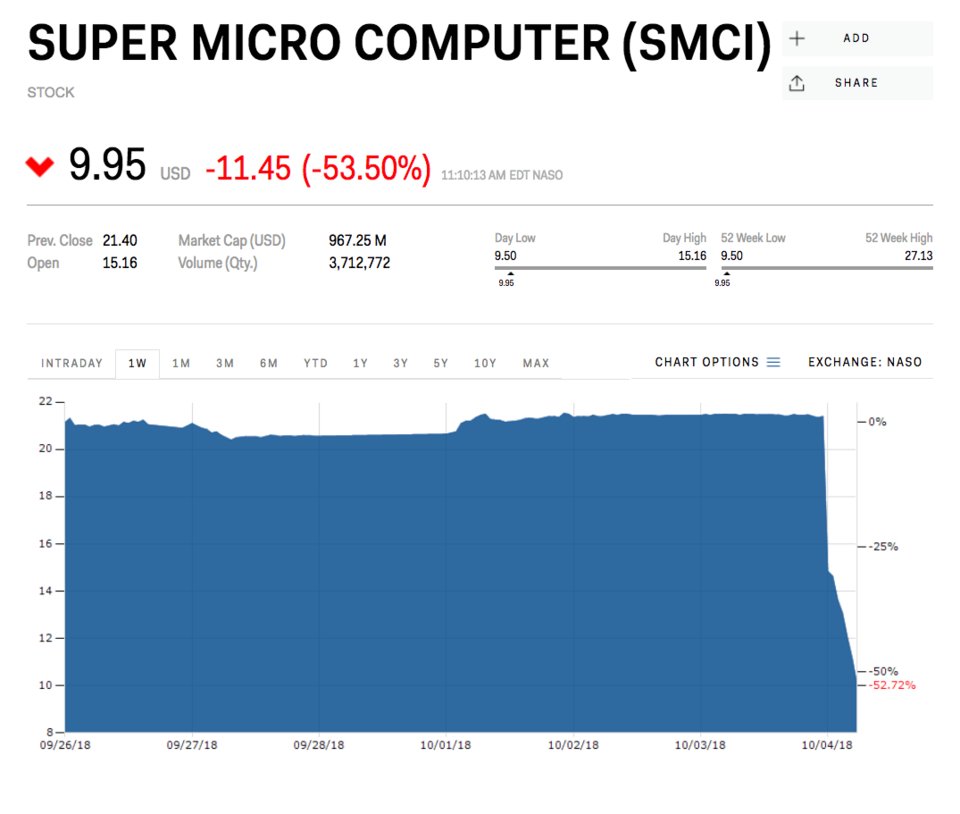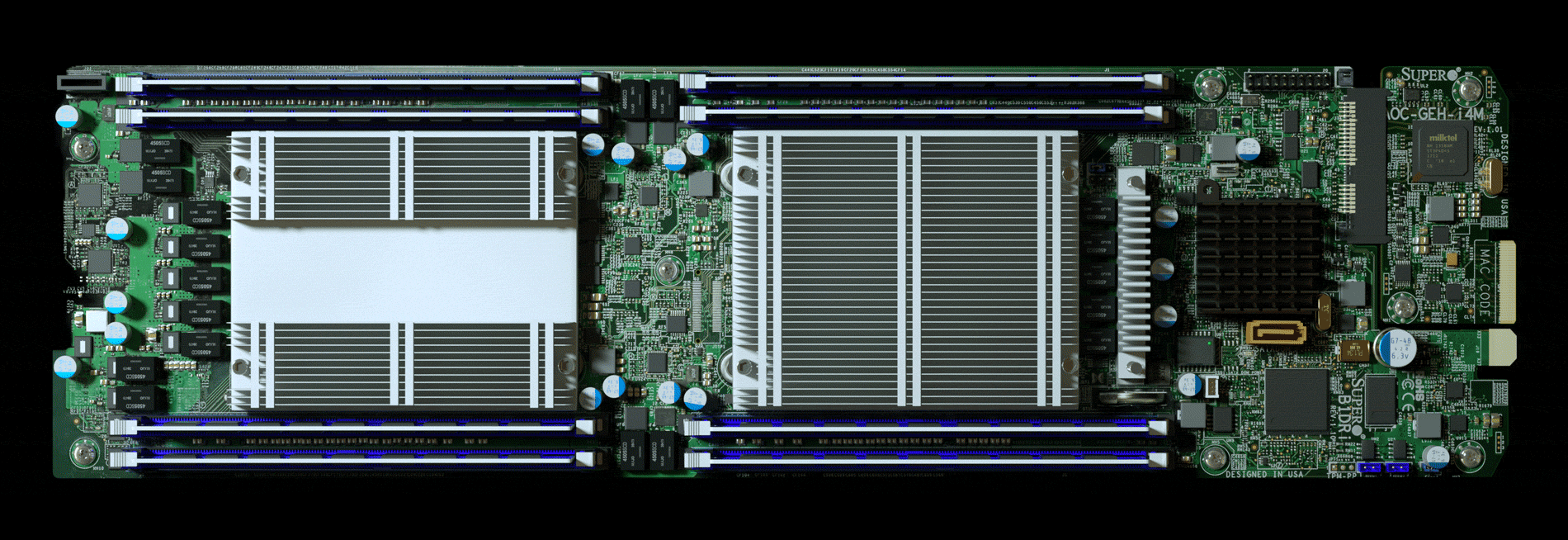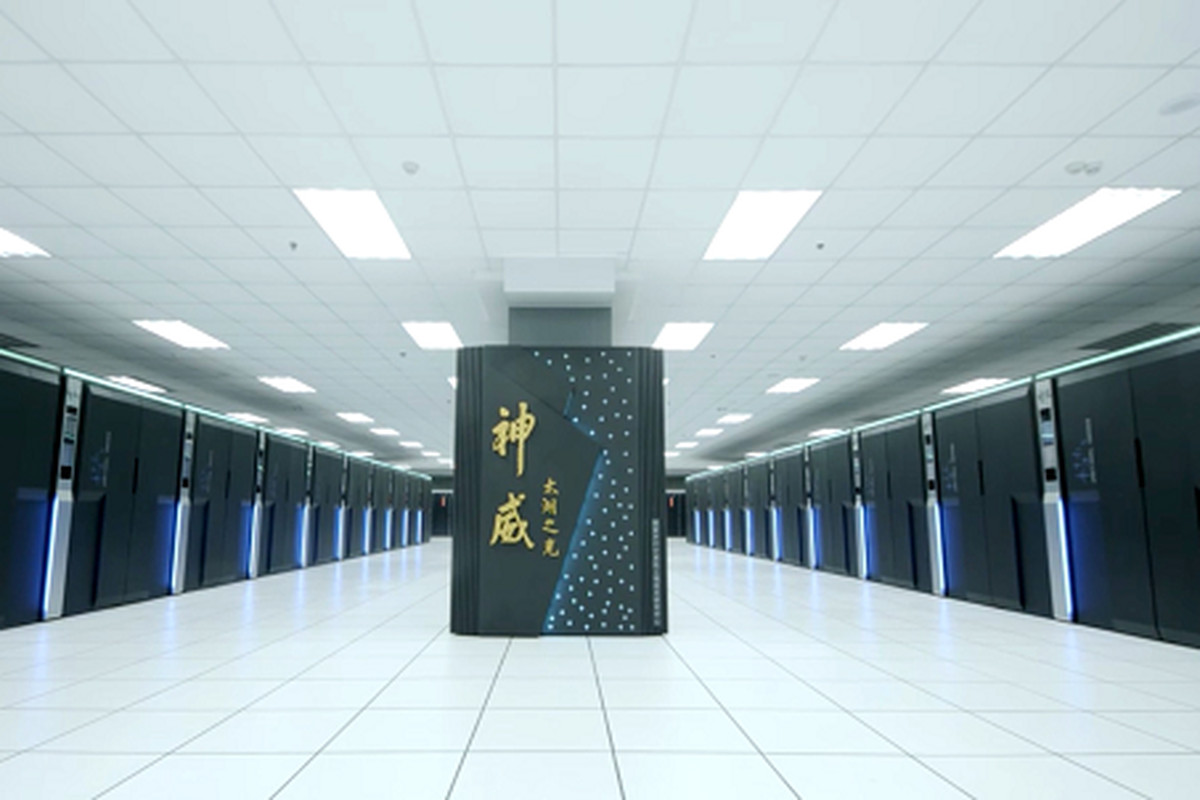Winston
Lorenzo von Matterhorn
- Joined
- Jan 31, 2009
- Messages
- 9,560
- Reaction score
- 1,749
The Big Hack: How China Used a Tiny Chip to Infiltrate U.S. Companies
The attack by Chinese spies reached almost 30 U.S. companies, including Amazon and Apple, by compromising America’s technology supply chain, according to extensive interviews with government and corporate sources.
4 Oct 2018
https://www.bloomberg.com/news/feat...filtrate-america-s-top-companies?srnd=premium
Selected excerpts:
Nested on the servers’ motherboards, the testers found a tiny microchip, not much bigger than a grain of rice, that wasn’t part of the boards’ original design. Amazon reported the discovery to U.S. authorities, sending a shudder through the intelligence community. Elemental’s servers could be found in Department of Defense data centers, the CIA’s drone operations, and the onboard networks of Navy warships. And Elemental was just one of hundreds of Supermicro customers.
During the ensuing top-secret probe, which remains open more than three years later, investigators determined that the chips allowed the attackers to create a stealth doorway into any network that included the altered machines. Multiple people familiar with the matter say investigators found that the chips had been inserted at factories run by manufacturing subcontractors in China.
1. A Chinese military unit designed and manufactured microchips as small as a sharpened pencil tip. Some of the chips were built to look like signal conditioning couplers, and they incorporated memory, networking capability, and sufficient processing power for an attack.
2. The microchips were inserted at Chinese factories that supplied Supermicro, one of the world’s biggest sellers of server motherboards.
3. The compromised motherboards were built into servers assembled by Supermicro.
4. The sabotaged servers made their way inside data centers operated by dozens of companies.
5. When a server was installed and switched on, the microchip altered the operating system’s core so it could accept modifications. The chip could also contact computers controlled by the attackers in search of further instructions and code.
In espionage circles, infiltrating computer hardware - especially to the degree that the Chinese did - is extremely difficult to pull off. And doing it at the nation-state level would be akin to "a unicorn jumping over a rainbow," as one of BBG's anonymous sources put it. But China's dominance of the market for PCs and mobile phones allows it a massive advantage.
One country in particular has an advantage executing this kind of attack: China, which by some estimates makes 75 percent of the world’s mobile phones and 90 percent of its PCs. Still, to actually accomplish a seeding attack would mean developing a deep understanding of a product’s design, manipulating components at the factory, and ensuring that the doctored devices made it through the global logistics chain to the desired location - a feat akin to throwing a stick in the Yangtze River upstream from Shanghai and ensuring that it washes ashore in Seattle. "Having a well-done, nation-state-level hardware implant surface would be like witnessing a unicorn jumping over a rainbow," says Joe Grand, a hardware hacker and the founder of Grand Idea Studio Inc. "Hardware is just so far off the radar, it’s almost treated like black magic."
But that’s just what U.S. investigators found: The chips had been inserted during the manufacturing process, two officials say, by operatives from a unit of the People’s Liberation Army. In Supermicro, China’s spies appear to have found a perfect conduit for what U.S. officials now describe as the most significant supply chain attack known to have been carried out against American companies.
One official says investigators found that it eventually affected almost 30 companies, including a major bank, government contractors, and the world’s most valuable company, Apple Inc. Apple was an important Supermicro customer and had planned to order more than 30,000 of its servers in two years for a new global network of data centers. Three senior insiders at Apple say that in the summer of 2015, it, too, found malicious chips on Supermicro motherboards. Apple severed ties with Supermicro the following year, for what it described as unrelated reasons.
In emailed statements, Amazon (which announced its acquisition of Elemental in September 2015), Apple, and Supermicro disputed summaries of Bloomberg Businessweek’s reporting. "It’s untrue that AWS knew about a supply chain compromise, an issue with malicious chips, or hardware modifications when acquiring Elemental," Amazon wrote. "On this we can be very clear: Apple has never found malicious chips, 'hardware manipulations’ or vulnerabilities purposely planted in any server," Apple wrote. "We remain unaware of any such investigation," wrote a spokesman for Supermicro, Perry Hayes. The Chinese government didn’t directly address questions about manipulation of Supermicro servers, issuing a statement that read, in part, "Supply chain safety in cyberspace is an issue of common concern, and China is also a victim." The FBI and the Office of the Director of National Intelligence, representing the CIA and NSA, declined to comment.
The attack by Chinese spies reached almost 30 U.S. companies, including Amazon and Apple, by compromising America’s technology supply chain, according to extensive interviews with government and corporate sources.
4 Oct 2018
https://www.bloomberg.com/news/feat...filtrate-america-s-top-companies?srnd=premium
Selected excerpts:
Nested on the servers’ motherboards, the testers found a tiny microchip, not much bigger than a grain of rice, that wasn’t part of the boards’ original design. Amazon reported the discovery to U.S. authorities, sending a shudder through the intelligence community. Elemental’s servers could be found in Department of Defense data centers, the CIA’s drone operations, and the onboard networks of Navy warships. And Elemental was just one of hundreds of Supermicro customers.
During the ensuing top-secret probe, which remains open more than three years later, investigators determined that the chips allowed the attackers to create a stealth doorway into any network that included the altered machines. Multiple people familiar with the matter say investigators found that the chips had been inserted at factories run by manufacturing subcontractors in China.
1. A Chinese military unit designed and manufactured microchips as small as a sharpened pencil tip. Some of the chips were built to look like signal conditioning couplers, and they incorporated memory, networking capability, and sufficient processing power for an attack.
2. The microchips were inserted at Chinese factories that supplied Supermicro, one of the world’s biggest sellers of server motherboards.
3. The compromised motherboards were built into servers assembled by Supermicro.
4. The sabotaged servers made their way inside data centers operated by dozens of companies.
5. When a server was installed and switched on, the microchip altered the operating system’s core so it could accept modifications. The chip could also contact computers controlled by the attackers in search of further instructions and code.
In espionage circles, infiltrating computer hardware - especially to the degree that the Chinese did - is extremely difficult to pull off. And doing it at the nation-state level would be akin to "a unicorn jumping over a rainbow," as one of BBG's anonymous sources put it. But China's dominance of the market for PCs and mobile phones allows it a massive advantage.
One country in particular has an advantage executing this kind of attack: China, which by some estimates makes 75 percent of the world’s mobile phones and 90 percent of its PCs. Still, to actually accomplish a seeding attack would mean developing a deep understanding of a product’s design, manipulating components at the factory, and ensuring that the doctored devices made it through the global logistics chain to the desired location - a feat akin to throwing a stick in the Yangtze River upstream from Shanghai and ensuring that it washes ashore in Seattle. "Having a well-done, nation-state-level hardware implant surface would be like witnessing a unicorn jumping over a rainbow," says Joe Grand, a hardware hacker and the founder of Grand Idea Studio Inc. "Hardware is just so far off the radar, it’s almost treated like black magic."
But that’s just what U.S. investigators found: The chips had been inserted during the manufacturing process, two officials say, by operatives from a unit of the People’s Liberation Army. In Supermicro, China’s spies appear to have found a perfect conduit for what U.S. officials now describe as the most significant supply chain attack known to have been carried out against American companies.
One official says investigators found that it eventually affected almost 30 companies, including a major bank, government contractors, and the world’s most valuable company, Apple Inc. Apple was an important Supermicro customer and had planned to order more than 30,000 of its servers in two years for a new global network of data centers. Three senior insiders at Apple say that in the summer of 2015, it, too, found malicious chips on Supermicro motherboards. Apple severed ties with Supermicro the following year, for what it described as unrelated reasons.
In emailed statements, Amazon (which announced its acquisition of Elemental in September 2015), Apple, and Supermicro disputed summaries of Bloomberg Businessweek’s reporting. "It’s untrue that AWS knew about a supply chain compromise, an issue with malicious chips, or hardware modifications when acquiring Elemental," Amazon wrote. "On this we can be very clear: Apple has never found malicious chips, 'hardware manipulations’ or vulnerabilities purposely planted in any server," Apple wrote. "We remain unaware of any such investigation," wrote a spokesman for Supermicro, Perry Hayes. The Chinese government didn’t directly address questions about manipulation of Supermicro servers, issuing a statement that read, in part, "Supply chain safety in cyberspace is an issue of common concern, and China is also a victim." The FBI and the Office of the Director of National Intelligence, representing the CIA and NSA, declined to comment.







